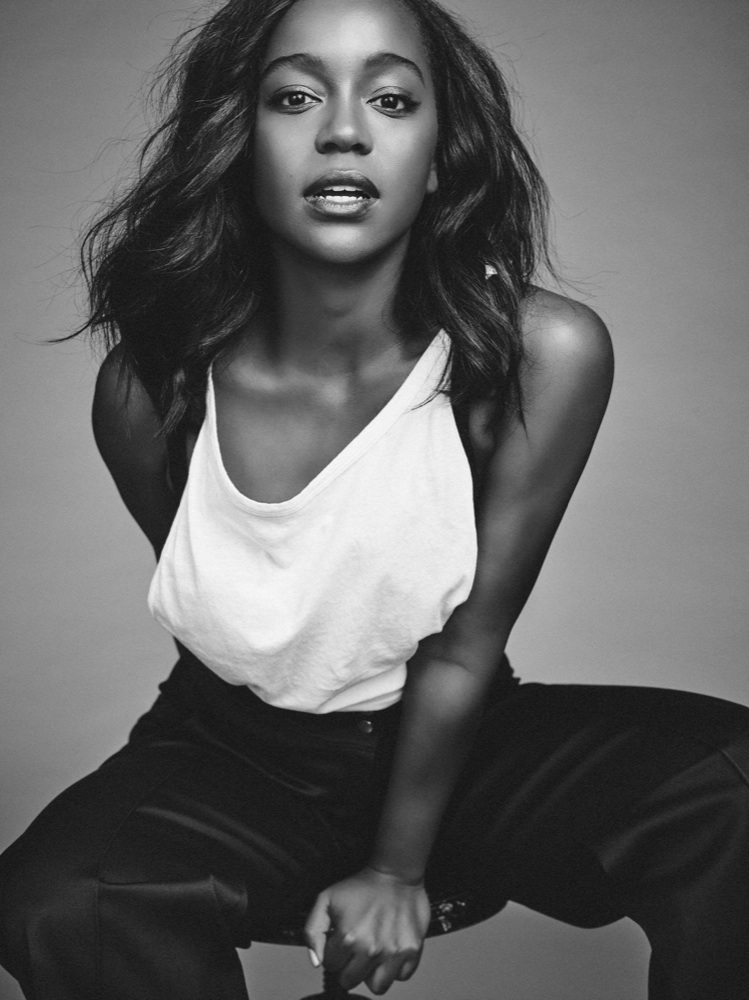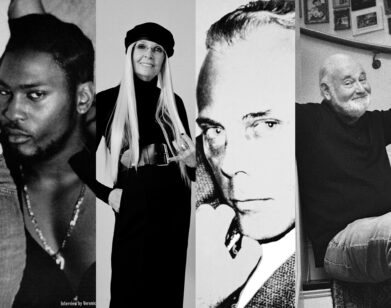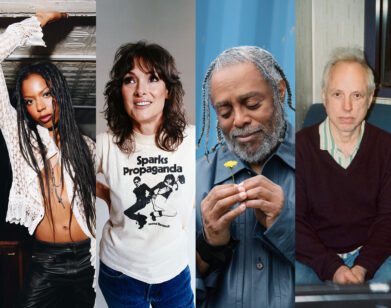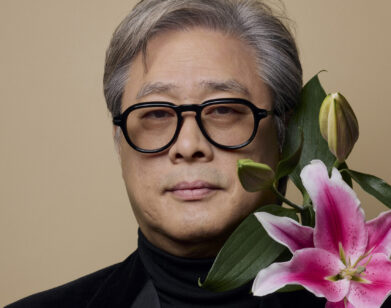Aja Naomi King
AJA NAOMI KING IN FEBRUARY, 2016. PHOTOS: DANI BRUBAKER. STYLING: LAURA MAZZA. HAIR: NIKKI PROVIDENCE/FORWARD ARTISTS USING FREE YOUR MANE. MAKEUP: JEN FIAMENGO/WALTER SCHUPFER MANAGEMENT USING NARS.
Before moving to New Haven to study for her MFA at Yale University, California-native Aja Naomi King had never seen snow. “I remember being a first year at Yale, being at rehearsal, and our director opening the door and saying, ‘Oh, it’s snowing outside,’” she told her friend actor Danielle Brooks over the phone last April. “I was like, ‘Real snow?’ I went outside and was not prepared at all! Seeing snow come from the sky felt like witnessing a miracle.”
King graduated from Yale in 2010 (Empire actor Trai Byers was in the year below her and other recent Yalies include Atlanta’s Brian Tyree Henry, The Get Down’s Yahya Abdul-Mateen II, and, of course, Lupita Nyong’o). Her television career began immediately, but it wasn’t until King was cast as the ambitious Michaela Pratt in Shonda Rhimes’s How to Get Away With Murder that she found her groove as a prime-time star.
Next month, HTGAWM, now a tentpole show for ABC, will return for a third season and King’s new film The Birth of the Nation will premiere at the Toronto International Film Festival. A biopic of Nat Turner, a slave and preacher who lead the most successful slave rebellion in U.S. history, The Birth of a Nation reclaims its name from D.W. Griffiths racist 1915 feature. King plays Cherry Turner, Nat’s wife.
Here, King and Brooks discuss their classical training (Brooks attended Juilliard) and the challenges of theater vs. television. At the time of this interview, Danielle Brooks was midway through her Tony-nominated run as Sofia in The Color Purple.
DANIELLE BROOKS: Hi Aja!
AJA NAOMI KING: It’s great to hear your voice.
BROOKS: Yours too! Where are you?
KING: I’m in California, sitting in my car. [laughs] Where are you?
BROOKS: I’m in New York, sitting on my bed, just trying to relax. We’ve got a show tonight at seven. Girl, you’ve been doing it up. This is so exciting to interview someone I think is such a great actor and is doing so well and is sort of in the same category when it comes to trained black woman actors who are up-and-coming.
KING: Aw, thank you.
BROOKS: Something I didn’t know about you is that you’re from California. When I first was introduced to you, you didn’t know me yet. I actually went to your showcase when you were at Yale. You did Our Lady of 121st Street. You left an impression. [laughs] I don’t remember everything your classmates did, but I remember what you did.
KING: Oh wow! I love that.
BROOKS: Being that you’re from Cali, what made you want to study on the East side?
KING: I grew up in a very suburban neighborhood, so I was used to everything being safe and lovely. I guess I was more excited about grad schools on the East Coast because I knew it would be outside my comfort zone and I’d be forced to learn something new about myself. It’d be an exciting change for me. My parents are actually from New York and New Jersey, but I’d only ever been there once or twice with them as a child. The idea of living out there on my own was just a way of further challenging myself to see what I’d be capable of in that environment, since my upbringing had been so sheltered beforehand.
BROOKS: When you graduated from Yale, how was that? Was it scary coming out of school or did you find an agent and manager pretty much right out of school? Did you see yourself—I’m asking 500 questions at one time—
KING: [laughs]
BROOKS: Did you see yourself wanting to do theater or go straight into TV?
KING: Luckily, my showcase scenes had also made a major impact on my current agent and manager—I’ve been with them since I graduated. I feel very lucky that they saw something in me, recognized part of my talent, and we’ve made a great team. I’ve been really happy with the choices we’ve made with my career. It made moving to New York easier having an agent and a manager. I felt that even though I had day jobs, I had people who were watching out for me, sending me in, and so I was still able to pursue this thing that I wanted. I thought I was going to be on Broadway. [laughs] I thought, “I’m going to do theater.” [But] at the time when I came out of school, unless you were a super talented musical singer and dancer, there wasn’t a lot of opportunity for someone who looked like me on Broadway. When the doors to television were opened to me, that was quite a surprise. It’s been such a gift that there was so much TV and independent film happening in New York that I could be a part of. There was something to satiate my desire to be artistic and creative, especially when it wasn’t in the way I originally thought it was going to be. You study at these schools for three—or in your case four—years and you think you’re just going to go out and do more Shakespeare and Chekhov and all these great, unheard of, new, original plays, and all of that doesn’t quite exist yet. There’s more of it now, which is wonderful.
BROOKS: Once you started working in television, what do you think was one of the major learning curves for you? It’s so different from theater—you trained for three years and now you’re all of a sudden doing independent films and TV.
KING: There was definitely a learning curve, but more so in the sense of taking ownership of my artistry. When you do a play, you have all this time to rehearse and grow into the character. In television, even though you’re waiting and waiting and waiting, once you’re actually on set engaging in the scene with another actor, time is of the essence. If you’re doing an indie and you have time, sometimes you can do take after take after take, but if you’re working in television on that filming schedule, you don’t always have the time to do that. You learn very quickly, I think, how essential it is to come in with the strongest choice that you have. You have that planned, and then allow yourself to keep playing in the moment knowing any of these takes could be the one that’s chosen. That was kind of terrifying.
BROOKS: I’m discovering the same thing with doing Orange [is the New Black] and [my Broadway play] The Color Purple. Like you were saying, [with television] you have to make the best choices. When you do theater and you have four or five weeks to rehearse, you’re already making the strongest choices that you can make; when you’re starting to figure out what works and what doesn’t, you haven’t wasted all of your time trying to work up to making the best choices, you’ve already done it.
KING: Exactly. You’ve already done it. The incredible thing about that, since you come in so strong and yet you have all this time to continue rehearsing your play, by the end of it you’re so opened up to so many nuances that you haven’t even thought of. It’s all the better for your performance.
BROOKS: I love theater so much, because you get a beginning, middle, and end. But when you’re in TV, you don’t know where your character is going. I don’t know how it works on How to Get Away with Murder—do they give you all 13 episodes? On Orange you get one episode at a time.
KING: I think that is the typical way. I hear some shows, you will get all the information of the entire arc, but that’s definitely not our show. A lot of the time, depending on how well things work out, even the arc that the writers thought they were going to do may evolve as the season continues, which is exciting. You have to be so open and available to being more human. Sometimes as human beings, we’re so contradictory—we may say something or do something and completely contradict ourselves. That’s what I’m learning to embrace in television—not knowing what’s going to happen. I might make a specific choice for myself and then in the next episode the writers might write something that contradicts it. At first I want to fight it and say, “No, we just did this,” but then I think, “Wait, but that’s human nature.” We go back on our word, we make ourselves out to be liars, we betray ourselves in that way. I really enjoy embracing that. It’s a nice way to learn what kind of character this person I’m playing is.
BROOKS: I like that you said that, because I think that’s something that’s been tricky for me. Like I said, I enjoy having a beginning, a middle, and an end, so with Taystee it’s like, “I wish someone had told me I was adopted. I could’ve done so many different things!”
KING: [laughs]
BROOKS: “If you had just told me Taystee didn’t like women.” The beauty of being a human is that we’re always contradicting ourselves. I think that’s why the characters still work. People still are drawn to both Michaela and Taystee, because we’re human.
KING: Exactly.
BROOKS: We haven’t talked too deeply about How to Get Away with Murder, but I love that show. I actually know a few of your people. One of your friends just came to our show.
KING: Kendrick [Samspon]! He texted me.
BROOKS: And Connor came to the show. We’ve had some people from How to Get Away with Murder come to The Color Purple. How is getting to be a part of a show that’s bringing new talent mixed with seasoned actors? Specifically, I want to know how it is to work with Viola Davis every day. That’s so awesome. I’m sure you get that question a lot, but I haven’t asked it. [laughs]
KING: She sets the tone. She’s so professional, but so relaxed about it. I think that’s because of her theatrical background. Yes, you show up prepared, but then you’re open to play and discovering where this scene might go. She has that kind of openness about her. As artists, we thrive when we can express our comfort and our discomfort. If a certain scene is really challenging for us, if we’re in an environment where we feel safe, we’re able to do our work. She makes me feel so safe, and so empowered, because I see the beauty in what she’s doing, I see the way she treats everyone so well. It doesn’t matter what you do on the show, she’ll want to talk to you, make a joke, share something about herself. She loves sharing pictures and videos she found on Facebook. [laughs] And her daughter, telling stories about her and her husband.
She brings you in, and it feels like family. When you’re in that kind of family environment, when you’re tasked with doing something difficult, you can allow yourself to be brave because you know you’re surrounded by people that love you, that only want the best for you. From day one, it’s been that wonderful. I was terrified. That first scene we’re in together in the pilot, I was so scared. Here she is, being amazing in this room, and I just want her to think I’m amazing too.
BROOKS: Right, and you are. It’s such a beautiful thing to be a part of this next generation of women in this business that are being embraced by the older generation of actors. It’s teaching us how we can behave and be towards each other—it’s not a competition—and to really look at each other as sisters. When you win, I win. You get to work with Viola Davis, that’s a win for me.
KING: Seeing you or Kelly McCreary, who is one of my best friends, or Samira Wiley, who I love, seeing them in audition rooms in New York or L.A., it’s always this celebration of, “We are here, look where we made it.” It’s wonderful to see other women doing so well and getting work that is worthy of them.
BROOKS: That brings me to another point, as you just reminded me. Another moment when I first met you was the Essence Black Women in Hollywood [party], and how incredible that moment was to be surrounded by all these black, chocolate girls. You got to stand on the stage and recite your poetry with Oprah. Mother O. [laughs]
KING: Mother O, right. Talk about moment of my life.
BROOKS: Was that an ask from her?
KING: It was actually the lovely ladies who run the event from Essence who invited me to join her on stage. How incredible was that? I thought that was so kind of them to include me.
BROOKS: The poem you were doing, I ended up buying the book. [laughs]
KING: Yeah, it was really uplifting, and about being united and cherishing one another, valuing each other.
BROOKS: I also wanted to ask, because I’ve been following you from the jump. This whole new project, The Birth of a Nation—tell me about it! I don’t know if people are ready. This is going to set the tone for a lot of things to come. I heard people were on their feet at the end of the movie [at Sundance].
KING: Being at Sundance was such a whirlwind, I was barely there for 24 hours because I was flying from work to get there and I had to fly back to work, but the energy, the excitement was electrifying.
BROOKS: And you’re playing Cherry.
KING: I play Cherry, Nat Turner’s wife, in the film.
BROOKS: I hate talking about this, but it’s a necessary part of the conversation, the #OscarsSoWhite thing. I felt this will definitely be a contender, not only because it’s a black film and they need to nominate black films, but because it’s deserving. It’s worthy. It’s really exciting, I’m glad you’re part of it.
KING: I am excited for it to open. It was meant to be an educational tool for future generations so that they could know another part of our story, the story of enslaved Africans, so that children could understand that we were also strong, and we were brave, and we were powerful, and we will not submit. It’s a message for every generation, something we need to know about ourselves. We are also warriors and we know what’s important to fight for. And we’ll continue to fight for these things.
BROOKS: When you had to step into Cherry Turner, we’re both trained actors and we pull on different things and different experiences, but was there one thing in particular that really helped you through this process? Was it you using your imagination, or something you watched?
KING: I had, of course, done research and created a thorough backstory for myself with Cherry, fleshing out her character, but once I was on set, the thing that would always ground me would actually just be connecting with [Nat and Cherry’s love story]. It was almost like the rest of the world fell away and it was just Nat and Cherry existing there together, trying to possess each other’s hearts in a world where we’re not allowed to possess anything. It was the idea of that, the power of that, to dare to love someone and have ownership of it, that always grounded me immediately and put me right where I needed to be.
HOW TO GET AWAY WITH MURDER RETURNS TO ABC ON SEPTEMBER 22, 2016. THE BIRTH OF A NATION WILL SCREEN AT THE 2016 TORONTO INTERNATIONAL FILM FESTIVAL NEXT MONTH. DANIELLE BROOKS IS A JUILLIARD-TRAINED AMERICAN ACTOR WHO IS BEST KNOWN FOR HER ROLE AS TAYSTEE IN NETFLIX’S ORANGE IS THE NEW BLACK. EARLIER THIS YEAR SHE MADE HER BROADWAY DEBUT IN THE COLOR PURPLE AND RECEIVED HER FIRST TONY NOMINATION.







